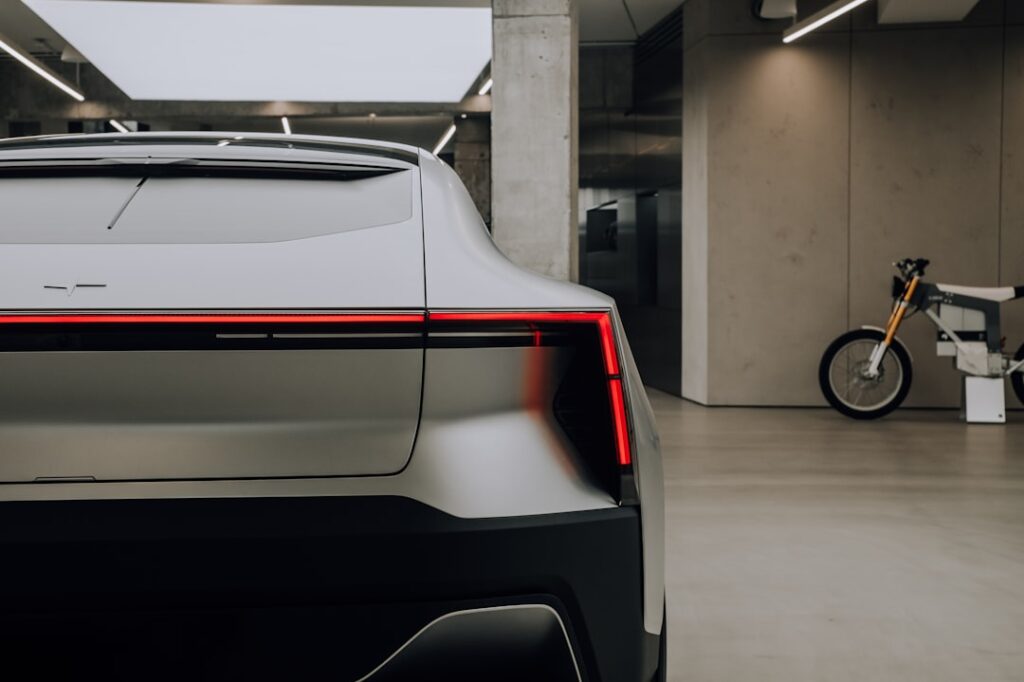Electric vehicles, also known as EVs, are vehicles that are powered by electricity instead of traditional fossil fuels. They use electric motors and rechargeable batteries to propel the vehicle forward. The concept of electric vehicles is not new, with the first electric car being developed in the 19th century. However, it is only in recent years that electric vehicles have gained significant popularity and attention.
The history of electric vehicles dates back to the early 1800s when inventors began experimenting with electric-powered vehicles. In 1835, Thomas Davenport built the first practical electric vehicle, which was a small locomotive. Over the years, various advancements were made in electric vehicle technology, but it was not until the late 20th century that electric vehicles started to gain traction.
There are several types of electric vehicles available in the market today. The most common type is the Battery Electric Vehicle (BEV), which is powered solely by electricity stored in a battery pack. Another type is the Plug-in Hybrid Electric Vehicle (PHEV), which combines an internal combustion engine with an electric motor and battery pack. There are also Fuel Cell Electric Vehicles (FCEVs), which use hydrogen fuel cells to generate electricity and power the vehicle.
Advantages of Owning an Electric Vehicle
Owning an electric vehicle comes with numerous advantages, making it an attractive option for many consumers. One of the most significant advantages is the environmental benefits that come with driving an electric vehicle. Unlike traditional gasoline-powered vehicles, electric vehicles produce zero tailpipe emissions, reducing air pollution and greenhouse gas emissions. This makes them a more sustainable and eco-friendly option for transportation.
In addition to the environmental benefits, owning an electric vehicle can also lead to cost savings in the long run. While the upfront cost of purchasing an electric vehicle may be higher than a traditional car, the cost of operating and maintaining an electric vehicle is significantly lower. Electricity is generally cheaper than gasoline, and electric vehicles require less maintenance since they have fewer moving parts and do not require oil changes.
Electric vehicles also offer performance advantages over traditional cars. Electric motors provide instant torque, resulting in quick acceleration and a smooth driving experience. Electric vehicles are also quieter and have a lower center of gravity, making them more agile and responsive on the road. Additionally, many electric vehicles come with advanced features and technology, such as regenerative braking and smart charging capabilities.
Convenience factors are another advantage of owning an electric vehicle. With the increasing availability of charging infrastructure, it is becoming easier to charge electric vehicles on the go. Many electric vehicles also offer the convenience of home charging, allowing owners to charge their vehicles overnight in their own garage. This eliminates the need to visit gas stations and provides a hassle-free charging experience.
Latest EV News and Updates
The electric vehicle industry is constantly evolving, with new developments and updates happening regularly. One of the most exciting aspects of the industry is the introduction of new electric vehicle models. Many automakers are investing heavily in electric vehicle technology and are launching new models to meet the growing demand for electric vehicles.
Some of the latest electric vehicle models include the Tesla Model 3, Nissan Leaf, Chevrolet Bolt EV, and BMW i3. These vehicles offer impressive range capabilities, advanced features, and sleek designs. The Tesla Model 3, in particular, has gained significant attention and popularity due to its affordability and long-range capabilities.
In addition to new vehicle models, there are also several industry partnerships and collaborations happening in the electric vehicle space. Automakers are teaming up with technology companies to develop innovative solutions for electric vehicle charging infrastructure, battery technology, and autonomous driving capabilities. These partnerships aim to accelerate the adoption of electric vehicles and drive further advancements in the industry.
Government policies and regulations also play a crucial role in shaping the electric vehicle industry. Many governments around the world are implementing policies to promote the adoption of electric vehicles and reduce reliance on fossil fuels. This includes incentives such as tax credits, rebates, and grants for electric vehicle purchases, as well as the development of charging infrastructure. These policies are aimed at making electric vehicles more accessible and affordable for consumers.
Tesla’s Impact on the Electric Vehicle Industry
When it comes to electric vehicles, one company that has had a significant impact on the industry is Tesla. Founded in 2003 by Elon Musk, Tesla’s mission is to accelerate the world’s transition to sustainable energy. The company has been at the forefront of electric vehicle innovation and has played a crucial role in popularizing electric vehicles.
Tesla’s influence on the electric vehicle market can be seen in several ways. Firstly, Tesla has set new standards for electric vehicle range capabilities. The company’s vehicles offer impressive range capabilities, with some models able to travel over 300 miles on a single charge. This has helped alleviate range anxiety, which is one of the main concerns for potential electric vehicle buyers.
Secondly, Tesla has built a strong brand and following around its electric vehicles. The company’s vehicles are known for their sleek designs, advanced technology, and high performance. Tesla has created a sense of excitement and desirability around electric vehicles, attracting a loyal customer base and generating significant media attention.
Furthermore, Tesla has been instrumental in driving advancements in battery technology. The company manufactures its own battery packs and has made significant improvements in battery energy density and performance. This has helped reduce the cost of batteries and increase the range capabilities of electric vehicles.
Looking ahead, Tesla has ambitious plans for the future of the electric vehicle industry. The company is working on developing more affordable electric vehicles to make them accessible to a wider range of consumers. Tesla is also investing in charging infrastructure to address the issue of charging convenience and accessibility. Additionally, Tesla is exploring autonomous driving technology and aims to develop fully self-driving electric vehicles in the near future.
Battery Car Technology Advancements
Battery technology is a critical component of electric vehicles, and advancements in this area are crucial for the growth and development of the electric vehicle industry. Over the years, there have been significant advancements in battery technology, leading to improvements in range capabilities, charging times, and overall performance of electric vehicles.
The most common type of battery used in electric vehicles is lithium-ion batteries. These batteries offer high energy density, long cycle life, and fast charging capabilities. However, there are ongoing efforts to develop even better battery technologies that can further enhance the performance and efficiency of electric vehicles.
One of the latest advancements in battery technology is the development of solid-state batteries. Solid-state batteries use a solid electrolyte instead of a liquid electrolyte, which offers several advantages. Solid-state batteries have higher energy density, faster charging times, and improved safety compared to traditional lithium-ion batteries. They also have the potential to be more cost-effective and environmentally friendly.
Another area of focus for battery technology advancements is increasing the energy density of batteries. Higher energy density means that batteries can store more energy in a smaller and lighter package, resulting in longer range capabilities for electric vehicles. Researchers are exploring various approaches to increase energy density, such as using different materials for battery electrodes and improving battery cell designs.
Looking ahead, there are several future developments in battery technology that hold promise for the electric vehicle industry. This includes the development of next-generation lithium-ion batteries with even higher energy density and longer cycle life. There is also ongoing research into alternative battery chemistries, such as lithium-sulfur and lithium-air batteries, which could offer even greater improvements in performance and cost-effectiveness.
Electric Vehicle Charging Infrastructure

A robust charging infrastructure is essential for the widespread adoption of electric vehicles. Charging infrastructure refers to the network of charging stations that allow electric vehicle owners to recharge their vehicles. There are different types of charging stations available, ranging from home charging solutions to public charging stations.
Home charging is one of the most convenient and accessible ways to charge an electric vehicle. It involves installing a charging station in the owner’s garage or driveway, allowing them to charge their vehicle overnight. Home charging stations can be plugged into a standard electrical outlet or require a dedicated circuit for faster charging. This provides electric vehicle owners with the convenience of always having a fully charged vehicle in the morning.
Public charging stations are another important component of the charging infrastructure. These stations are typically located in public places such as parking lots, shopping centers, and rest areas. Public charging stations come in different power levels, ranging from Level 1 (120 volts) to Level 3 (DC fast charging). Level 3 charging stations can charge an electric vehicle much faster than Level 1 or Level 2 stations, making them ideal for long-distance travel.
One of the challenges for charging infrastructure is the availability and accessibility of charging stations. While the number of charging stations is increasing, there is still a need for more widespread coverage, especially in rural areas and along highways. This requires collaboration between automakers, governments, and other stakeholders to invest in the development of charging infrastructure.
Another challenge is the standardization of charging protocols and connectors. Different electric vehicle models use different connectors and protocols for charging, which can be confusing for consumers and limit interoperability between different charging stations. Efforts are being made to establish common standards for charging connectors and protocols to ensure compatibility and ease of use for electric vehicle owners.
Government Incentives for Electric Vehicles
Government incentives play a crucial role in promoting the adoption of electric vehicles. Many governments around the world offer various incentives to encourage consumers to purchase electric vehicles and reduce reliance on fossil fuels. These incentives can take the form of tax credits, rebates, grants, and other financial incentives.
One of the most common types of government incentives for electric vehicles is a tax credit. Tax credits allow consumers to deduct a certain amount from their tax liability when they purchase an electric vehicle. The amount of the tax credit varies depending on the country and region, but it can significantly reduce the cost of purchasing an electric vehicle.
Some governments also offer rebates or grants for electric vehicle purchases. These incentives provide a direct financial incentive to consumers, making electric vehicles more affordable and accessible. Rebates and grants can be offered at the time of purchase or as a reimbursement after the purchase is made.
In addition to financial incentives, governments also play a role in developing charging infrastructure. Many governments provide funding and support for the development of public charging stations, making it easier for electric vehicle owners to find and use charging facilities. Governments may also offer incentives for businesses and organizations to install charging stations on their premises.
The impact of government incentives on the electric vehicle market has been significant. Incentives have helped drive demand for electric vehicles and make them more affordable for consumers. They have also encouraged automakers to invest in electric vehicle technology and develop more electric vehicle models.
Top Electric Vehicles on the Market
There are several top electric vehicles available in the market today, each offering unique features and specifications. These vehicles are leading the way in terms of range capabilities, performance, and overall driving experience. Here is an overview of some of the top electric vehicles on the market:
1. Tesla Model 3: The Tesla Model 3 is one of the most popular electric vehicles on the market. It offers impressive range capabilities, with some models able to travel over 300 miles on a single charge. The Model 3 also comes with advanced features such as Autopilot, a semi-autonomous driving system, and over-the-air software updates.
2. Nissan Leaf: The Nissan Leaf is one of the best-selling electric vehicles globally. It offers a comfortable and spacious interior, as well as a range of up to 226 miles. The Leaf also comes with advanced safety features and a user-friendly infotainment system.
3. Chevrolet Bolt EV: The Chevrolet Bolt EV is known for its long-range capabilities, with a range of up to 259 miles. It offers a spacious interior and a smooth and quiet driving experience. The Bolt EV also comes with advanced safety features and a user-friendly infotainment system.
4. BMW i3: The BMW i3 is a compact electric vehicle that offers a unique and futuristic design. It has a range of up to 153 miles and comes with advanced features such as regenerative braking and a carbon fiber-reinforced plastic body.
5. Audi e-tron: The Audi e-tron is a luxury electric SUV that offers a range of up to 222 miles. It comes with a spacious and luxurious interior, as well as advanced features such as virtual side mirrors and adaptive air suspension.
Each of these electric vehicles has its own pros and cons, and the choice ultimately depends on the individual’s preferences and needs. Factors such as range, performance, charging infrastructure, and price should be considered when choosing an electric vehicle.
Future Predictions for the Electric Vehicle Industry
The future of the electric vehicle industry looks promising, with several trends and developments expected to shape the industry in the coming years. Here is an overview of some future predictions for the electric vehicle industry:
1. Increased adoption rates: As battery technology continues to improve and charging infrastructure becomes more widespread, the adoption of electric vehicles is expected to increase significantly. Many experts predict that electric vehicles will become the dominant form of transportation in the near future.
2. Expansion of charging infrastructure: Governments, automakers, and other stakeholders are investing heavily in the development of charging infrastructure. This includes the installation of more public charging stations, as well as the development of fast-charging networks along highways. This will make it easier for electric vehicle owners to charge their vehicles on the go and alleviate range anxiety.
3. Continued advancements in battery technology: Battery technology is expected to continue to improve, leading to longer range capabilities, faster charging times, and lower costs. This will make electric vehicles even more attractive and accessible to consumers.
4. Integration of renewable energy: As the adoption of electric vehicles increases, there will be a greater need for renewable energy sources to power these vehicles. Many experts predict that electric vehicles will be integrated with renewable energy sources such as solar and wind power, creating a more sustainable and clean transportation system.
5. Autonomous driving capabilities: Electric vehicles are well-suited for autonomous driving technology due to their advanced features and connectivity capabilities. Many automakers are investing in autonomous driving technology and are working towards developing fully self-driving electric vehicles. This could revolutionize the way we travel and further enhance the convenience and safety of electric vehicles.
While there are many positive predictions for the electric vehicle industry, there are also potential challenges that need to be addressed. These include the limited availability of raw materials for batteries, the need for more efficient recycling processes for batteries, and the potential strain on the electrical grid due to increased demand for electricity.
Why Electric Vehicles are the Future
In conclusion, electric vehicles offer numerous advantages and benefits that make them a viable option for the future of transportation. They provide environmental benefits by reducing air pollution and greenhouse gas emissions. Electric vehicles also offer economic benefits by reducing dependence on fossil fuels and lowering fuel costs. Additionally, they have lower maintenance costs and longer lifespans compared to traditional combustion engine vehicles. Furthermore, electric vehicles contribute to energy independence by utilizing renewable energy sources such as solar and wind power. The advancements in battery technology have also addressed concerns about limited range and charging infrastructure. With the increasing focus on sustainability and the need to combat climate change, electric vehicles are poised to play a significant role in the future of transportation. As governments and industries continue to invest in electric vehicle infrastructure and technology, it is clear that electric vehicles are the future of transportation.
In the latest news about EV’s, there is an interesting article on Synthetic News that explores the impact of NVIDIA on business. NVIDIA, known for its cutting-edge technology and graphics processing units, has been making significant strides in the electric vehicle industry. This article delves into how NVIDIA’s advancements are revolutionizing the way EV’s are designed and operated. To learn more about this fascinating topic, check out the article here.






